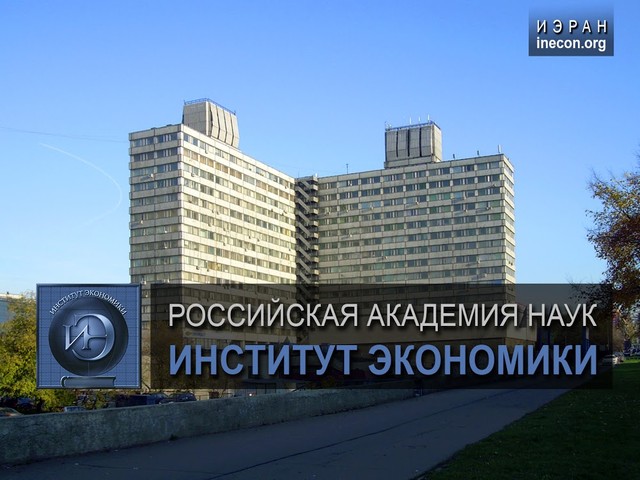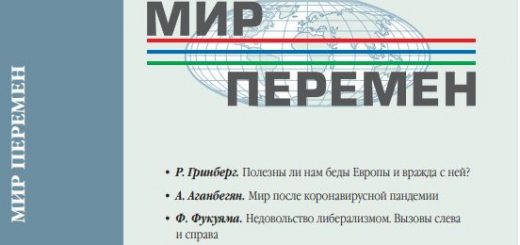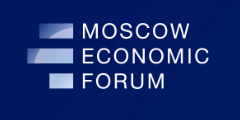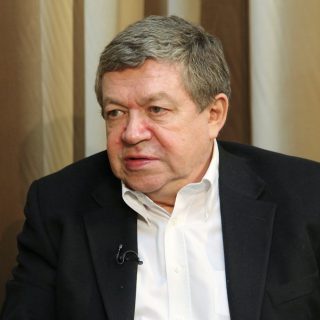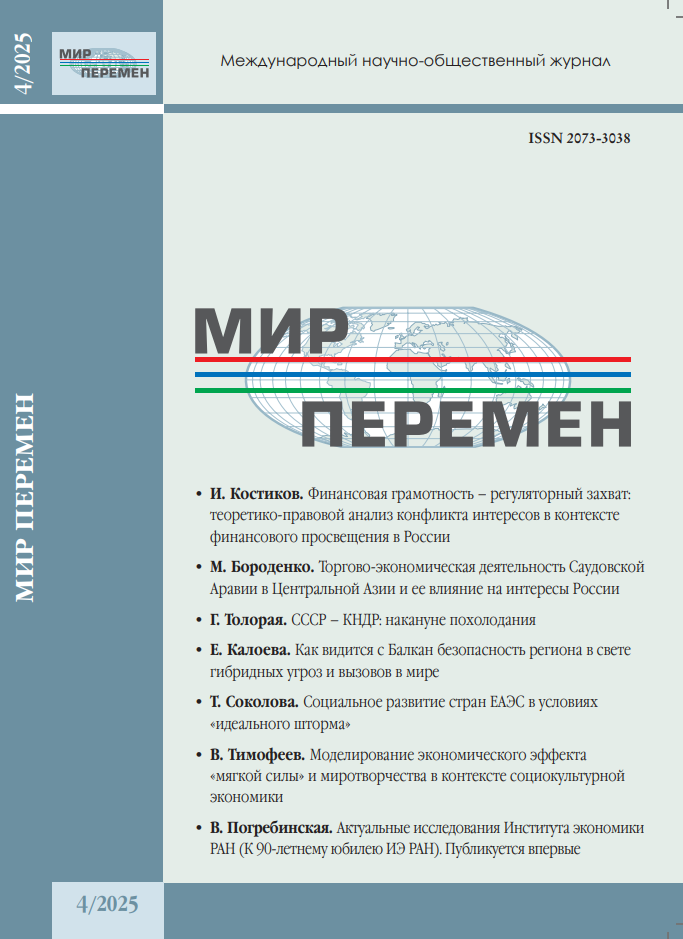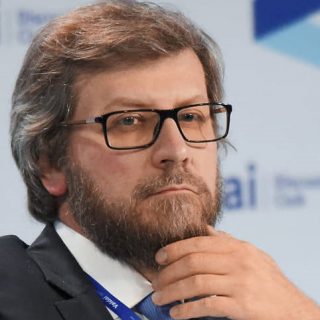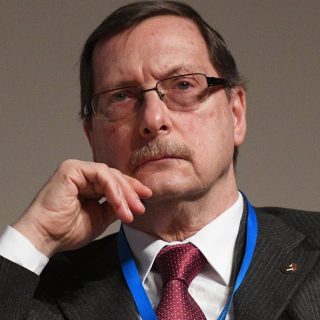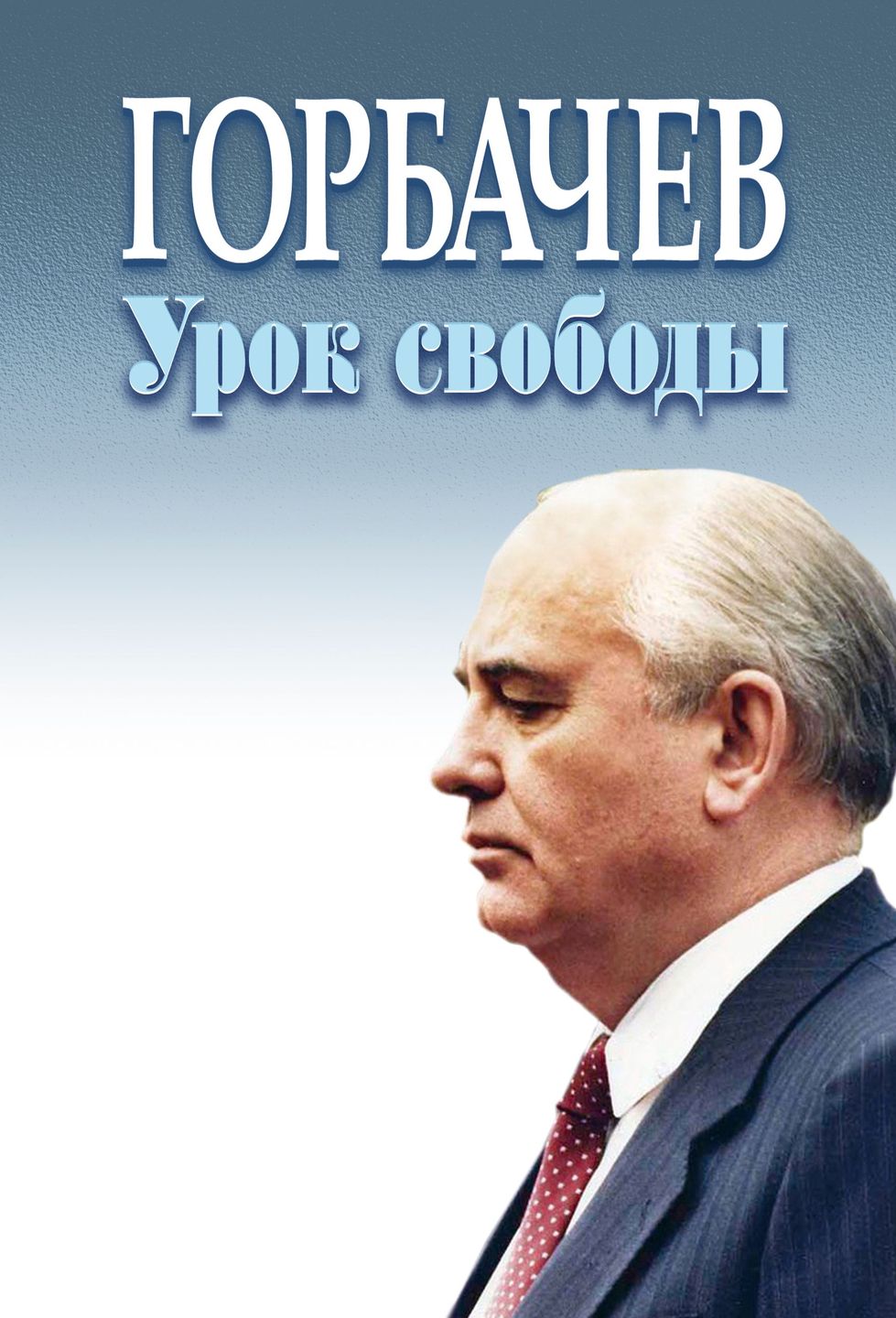Мир перемен. 2025. № 2
Мир перемен. 2025. № 2.
- содержание резюме contents summary
СОДЕРЖАНИЕ
Непонятый пророк
М. Горбачев. Глобальный императив гуманизма (Выступление на церемонии вручения премий Канадского Красного Креста «Сила гуманности», Торонто, 11 апреля 2005 г.)
М. Горбачев. Уинстон Черчилль: видение, лидерство, воля. (Выступление на торжественном вечере в честь У. Черчилля во дворце Блэнхейм в Лондоне, 28 апреля 2007 г.)
М. Горбачев. 60-летие Всеобщей Декларации прав человека. (Выступление на Генеральной ассамблее Форума мировой политики, Милан, 7 ноября 2008 г.)
Дилеммы глобализации
С. Дубинин. Фрагментация глобальной экономики и правила игры в многополярной экономической системе
М. Шерстнев. Международное движение капитала: эволюция подходов МВФ в 1997–2020 г.
Экономика
А. Рубинштейн. Новая экономическая теория государства (Научный доклад к юбилею Института экономики РАН)
Г. Толорая. Геополитические треугольники в «поясе соседства» в Восточной Азии: вызовы для России
И. Костиков. Неоиндустриализация и новая политическая элита США
М. Бороденко. Экономические интересы Саудовской Аравии на Украине. Что они значат для России?
Х. Гаджиев. Постсоветский Азербайджан в контексте политики многовекторности
Социальная политика
Е. Калоева. Балканские исследователи – о решении проблемы бедности в регионе
РЕЗЮМЕ
М. Горбачев. Глобальный императив гуманизма
Выступление на церемонии вручения премий Канадского Красного Креста «Сила гуманности», Торонто, 11 апреля 2005 г.
Ключевые слова: глобализация, миропорядок, бедность, экология, неравенство, ООН, глобальная рыночная экономика, гуманистические принципы мироустройства.
М. Горбачев. Уинстон Черчилль: видение, лидерство, воля.
Выступление на торжественном вечере в честь У. Черчилля во дворце Блэнхейм в Лондоне, 28 апреля 2007 г.
Ключевые слова: Уинстон Черчилль, роль личности в истории, Вторая мировая война, преодоление идеологических барьеров, создание ООН, идеологическое противостояние, гонка вооружений, концепция мирного сосуществования.
М. Горбачев. 60-летие Всеобщей Декларации прав человека.
Выступление на Генеральной ассамблее Форума мировой политики, Милан, 7 ноября 2008 г.
Ключевые слова: Генассамблея форума мировой политики, права человека, Всеобщая Декларация прав человека, холодная война, глобализация, новая мировая политика.
С. Дубинин. Фрагментация глобальной экономики и правила игры в многополярной экономической системе
УДК: 336; 339.
EDN: WGBROL
DOI: 10.51905/2073-3038_2025_2_ 24
Фрагментация мирового хозяйства содержит не только чисто экономические векторы развития. Напротив, в качестве движущей силы этого процесса выступает нарастание политического противостояния в условиях многополярного мира. Каждый аспект фрагментации нуждается в специальном анализе. Нашей задачей является рассмотрение экономических и финансовых «силовых линий».
Период 2020–2025 г. – это время поиска путей как сочетать приоритеты национальной безопасности с экономическими целями. Г. Гопинат, первый заместитель управляющего директора МВФ, утверждает, что «политические руководители во все большей степени… сосредотачиваются на обеспечении экономической устойчивости». Фрагментация финансовых рынков может оказывать влияние на макроэкономические тренды как на национальном, так и на глобальном уровнях.
Статья рассматривает финансовые аспекты возникновения блоков стран, групп, ориентированных на США и на КНР, хотя большинство государств и предпочитает поддерживать отношения с обеими соперничающими блоками.
Ключевые слова: глобализация экономики; международная торговля; фрагментация мировой экономики; финансовая фрагментация; мультивалютные платежные системы; нетрадиционные резервные валюты.
Сергей Константинович Дубинин – доктор экономических наук, профессор экономического факультета МГУ (г. Москва).
М. Шерстнев. Международное движение капитала: эволюция подходов МВФ в 1997–2020 г.
УДК: 339.727.2
EDN: XUTCUG
DOI: 10.51905/2073-3038_2025_2_47
В статье предпринимается попытка очертить основные аспекты сдвига в подходе МВФ к международной мобильности капитала с точки зрения поиска оптимального соотношения между свободой, регулированием и контролем. Череда финансовых кризисов и других эпизодов финансовой нестабильности в последние три десятилетия, большинство из которых включали эффекты от международных потоков капитала, сделали невозможным следование прямолинейному подходу на либерализацию международного движения капитала. А также вызвали необходимость расширения теоретических и методологических оснований дискуссии, сместив акценты с первого наилучшего состояния ко второму наилучшему.
На практике фонд предпринимает попытку внедрить новый внутренне согласованный операционный каркас (который мог бы служить основой для политических рекомендаций), выходящий за пределы конвенциональной макроэкономической политики и опирающийся на гетеродоксальный набор инструментов. Эта работа еще далека от завершения и проверки практикой. А вот COVID-19 уже привнес тест на беспрецедентный в новой экономической истории внеэкономический шок, с новым уровнем неопределенности во всех социальных и экономических процессах.
Ключевые слова: Международный валютный фонд, МВФ, международная мобильность капитала, второе наилучшее равновесие, управление капитальными потоками, COVID-19, неопределенность.
Михаил Анатольевич Шерстнев – кандидат экономических наук, доцент Института экономики и управления Самарского университета (г. Самара).
А. Рубинштейн. Новая экономическая теория государства (Научный доклад к юбилею Института экономики РАН)
УДК: 330.8
EDN: ZEQENG
DOI: 10.51905/2073-3038_2025_2_56
Классификация JEL: А12, А13, А14, B41, H41, Z13
Положение о несводимости общественного интереса к индивидуальным предпочтениям лежит в основе общей логики Концепции экономической социодинамики (КЭС) и ее наследия, что позволяет рассматривать их как комплекс идей, расширяющих границы экономического анализа. Исследование показало также, что ряд теоретических результатов, полученных в период 2000–2025 г., может иметь более общее научное обоснование, опирающееся на достижения современной философии и теоретической социологии, обусловившие авторское введение в научный оборот принципа методологического релятивизма. Использование этого принципа и анализ четырех относительно самостоятельных и не сильно пересекающихся философских доктрин релятивизма, оказавших в последние десятилетия наибольшее влияние в академической среде, позволили сформулировать особенности релятивистской методологии, «уравнивающей в правах» интересы индивидов и автономные интересы государства.
Представлено принципиально новое направление исследований, продолжающее общую линию и логику КЭС, в котором релятивистская методология и наличие автономного интереса государства позволили определить более общее содержание самой категории государства и введение его новой парадигмы в форме метасистемы «политическая власть – экономика – гражданское общество», включая измерение социальной структуры государства и ее сбаланси
Ключевые слова: индивидуализм, холизм, философия, теоретическая социология, методологический релятивизм, государство, власть, экономика, гражданское общество.
Александр Яковлевич Рубинштейн – кандидат экономических наук, доктор философских наук, профессор, руководитель научного направления «Теоретическая экономика» Института экономики РАН, заслуженный деятель науки РФ (г. Москва).
Г. Толорая. Геополитические треугольники в «поясе соседства» в Восточной Азии: вызовы для России
УДК: 327, 339.9.
EDN: JJQAIP
DOI: 10.51905/2073-3038_2025_2_85
Динамика развития геополитических отношений между Россией, Китаем и Северной Кореей (КНДР) в контексте роста напряженности в Северо-Восточной Азии (СВА) в какой-то мере стала реакцией на формированиие «треугольника» США – Япония – Южная Корея. Возможно ли вызревание «северного» контр-альянса?
Важный фактор – недавнее укрепление отношений между Россией и КНДР, более глубокое сотрудничество в области обороны и безопасности. Освещая осторожную позицию Китая в отношении связей России и КНДР, которая учитывает обеспокоенность Пекина стабильностью в регионе и собственными стратегическими интересами, автор предлагает собственную трактовку событий.
Вывод. Хотя формальный «северный альянс» маловероятен, усиление координации между Россией, Китаем и КНДР окажет значительное влияние на региональную и глобальную политику, бросив вызов существующему порядку в Северо-Восточной Азии, которым пытаются управлять США. В связи с этим автор задается вопросом о роли многосторонней дипломатии.
Ключевые слова: треугольник США – РК – Япония, трехсторонний союз РФ – КНР – КНДР, военный союз РФ – КНДР, китайские оценки российско-северокорейских отношений, многосторонняя дипломатия по корейской проблеме.
Георгий Давидович Толорая – доктор экономических наук, руководитель Центра стратегии России в Азии ИЭ РАН, главный научный сотрудник Центра мировой политики и стратегического анализа, Институт Китая и современной Азии РАН (г. Москва).
И. Костиков. Неоиндустриализация и новая политическая элита США
УДК: 323.2; 338.2 (73)
EDN: SNBENR
DOI: 10.51905/2073-3038_2025_2_111
Неоиндустриализация в США, связанная с развитием высокотехнологичных отраслей – искусственного интеллекта, робототехники, биотехнологий и возобновляемой энергетики, – трансформирует экономический, социальный и политический ландшафт страны. Переход от традиционной индустриальной модели к экономике, основанной на передовых технологиях, сопровождается формированием новой политической элиты: в ее состав входят руководители технологических компаний и технократы, постепенно вытесняющие представителей старых кланов финансистов Уолл-стрит и нефтяных магнатов. Особенно ярко этот процесс проявился в периоды смены власти – во время выборов 2020 г., промежуточных выборах 2022-го и 2025-го как начало второго президентства Д. Трампа.
Актуальность этого исследования определяется несколькими ключевыми факторами. Во-первых, на фоне усиления социального неравенства и роста популизма внутри страны меняются приоритеты внутренней и внешней политики, особенно в условиях обострившейся конкуренции с Китаем и Россией. Во-вторых, переход к новым технологическим укладам создает предпосылки для формирования к 2040–2050 г. постнационального общества, что может радикально изменить традиционные институты власти.
Цель исследования – проанализировать роль неоиндустриализации в формировании новой политической элиты США и оценить ее влияние на ключевые политические и экономические процессы с прогнозом до 2040–2050 г.
Ключевые слова: неоиндустриализация, политическая элита, высокотехнологичные отрасли, искусственный интеллект, социальное неравенство, популизм, технократия, цифровой империализм, кибер-конфликты, постнациональное общество.
Игорь Владимирович Костиков ‒ доктор экономических наук, профессор, председатель совета межрегиональной общественной организации «Союз потребителей финансовых услуг» (г. Москва).
М. Бороденко. Экономические интересы Саудовской Аравии на Украине. Что они значат для России?
УДК: 339.56
EDN: UDDJGM
DOI: 10.51905/2073-3038_2025_2_140
В 2025 г. столица Королевства Саудовская Аравия стала одним из мировых дипломатических центров. Именно в Эр-Рияде 18 февраля прошли первые за последние три года прямые переговоры между представителями Российской Федерации и Соединенных Штатов Америки. Спустя чуть больше месяца, 25 марта, там же были проведены консультации США с Украиной и Россией, которые в Вашингтоне назвали «непрямыми переговорами» между Москвой и Киевом. Это также была первая за долгое время попытка усадить стороны украинского конфликта за стол переговоров хотя бы в таком формате.
Возник справедливый вопрос, почему Саудовская Аравия, расположенная совсем в другом регионе земного шара, проявляет такую посредническую активность в урегулировании кризиса на Украине. В статье рассмотрим, какие цели преследует Эр-Рияд на украинском направлении.
Ключевые слова: Саудовская Аравия, Украина, торговля, экспорт, импорт, сельское хозяйство, Россия.
Максим Максимович Бороденко – младший научный сотрудник Центра постсоветских исследований Института экономики РАН (г. Москва).
Х. Гаджиев. Постсоветский Азербайджан в контексте политики многовекторности
УДК: 321.01; 323.2; 339.9
EDN: VHFBFN
DOI: 10.51905/2073-3038_2025_2_151
Используемая Азербайджаном стратегия развития позволила ему выйти на ведущие позиции на постсоветском пространстве. Принятый государственный курс на внутренней арене характеризуется поддержанием политической стабильности и устойчивости, поступательным экономическим развитием, реализацией принципа поликультурности. На внешней арене Азербайджан выстраивает многовекторную политику, эффективно используя имеющиеся ресурсы и свой потенциал. В статье исследуется политическая система современного Азербайджана и особенности его государственной политики.
Ключевые слова: политическая система Азербайджана, постсоветские государства, постсоветское пространство, государственная политика Азербайджана, многовекторность.
Ханлар Аляр оглы Гаджиев – кандидат политических наук, старший научный сотрудник Центра постсоветских исследований Института экономики РАН (г. Москва).
Е. Калоева. Балканские исследователи – о решении проблемы бедности в регионе
УДК: 364.
EDN: GACZEW
DOI: 10.51905/2073-3038_2025_2_172
В статье предпринята попытка проанализировать социальную политику стран Западных Балкан как теоретическую и практическую деятельность, важнейшей целью которой является обеспечение социальной безопасности граждан. Автор не претендует на исчерпывающий анализ экономического развития стран региона и результатов проводимой в них социальной политики. В случае балканских стран научная проблематика социальной политики предполагает рассмотрение весьма сложного предмета, который формировался под действием различных исторических, политических, идеологических, этнических и религиозных факторов. Все это во многом затрудняет решение на практике такой насущной проблемы, как борьба с бедностью. В статье показана проделанная в этом направлении работа, которая, к сожалению, лишь частично приблизила страны к улучшению положения наиболее уязвимых групп населения.
Ключевые слова: социальная защита, социальное обеспечение, социальные услуги, бедность, страны Западных Балкан.
Елена Борисовна Калоева – кандидат исторических наук, независимый исследователь (г. Москва).
Contents
The Misunderstood Prophet
M. Gorbachev. The Global Imperative of Humanism (Speech at the Canadian Red Cross Power of Humanity Awards Ceremony, Toronto, April 11, 2005)
M. Gorbachev. Winston Churchill – Vision, Leadership, Will (Speech at the Gala Evening in Honor of W. Churchill at Blenheim Palace in London, April 28, 2007)
M. Gorbachev. 60th Anniversary of the Universal Declaration of Human Rights (Speech at the General Assembly of the World Policy Forum, Milan, November 7, 2008)
Globalization Dilemmas
S. Dubinin. Global Economy Fragmentation and the Rules of the Game in a Multipolar Economic System
M. Sherstnev. International Capital Movement: the IMF’s Approaches in 1997–2020
Economy
A. Rubinstein. The New Economic Theory of the State (Scientific Report for the Anniversary of the Institute of Economics of the Russian Academy of Sciences)
G. Toloraya. Geopolitical Triangles in the «Neighborhood Belt» in East Asia: Challenges for Russia
I. Kostikov. Neoindustrialization and the New Political Elite of the United States
M. Borodenko. Saudi Arabia’s Economic Interests in Ukraine. What do they Mean for Russia
Kh. Gadzhiev. Post-Soviet Azerbaijan in the context of multi-vector policy
Social policy
E. Kaloeva. Balkan Researchers on Solving the Problem of Poverty in the Region
Summary
M. Gorbachev. The Global Imperative of Humanism
Speech at the Canadian Red Cross Power of Humanity Awards Ceremony, Toronto, April 11, 2005.
All of us, both people of my generation and those who are younger, come from the twentieth century, which shaped our life experience, our worldview, our ideological and political preferences and prejudices. It was a very dynamic century, the most dynamic in the entire history of mankind in terms of the pace of scientific and technological progress, the growth of material and spiritual production, changes in lifestyle, culture, and the pace of socio-political transformations.
But it was also the most violent age. The great achievements of scientific and technical thought were directed towards the creation of the most advanced means of mass destruction. The wars of the twentieth century – two world wars and dozens of colonial, local, and civil wars – claimed more than 80 million lives. And the same number were killed by totalitarian regimes.
How many resources have been consumed by the arms race, which is absolutely irrational from the point of view of common sense. The USA and the USSR spent 10 trillion dollars each on the arms race. They would be more than enough to solve the most pressing socio-economic problems of mankind.
Keywords: globalization, world order, poverty, ecology, inequality, the United Nations, global market economy, humanistic principles of the world order.
Mikhail S. Gorbachev – General Secretary of the Central Committee of the CPSU, the First and Last President of the USSR (Moscow).
М. Gorbachev. Winston Churchill – Vision, Leadership
Will Speech at the Gala Evening in Honor of W. Churchill at Blenheim Palace in London, on the 28th of April 28, 2007.
Sir W. Churchill said that anyone who had not been a liberal (radical) in his youth, had no heart, and anyone who had not become a conservative after the age of thirty, had no mind. I must admit that, although in my youth and later I often had to humble my radical impulses, in more than fifty years in politics I had never become a conservative.
Sir W. Churchill is undoubtedly a historical figure. In the 20th century, there are few political figures comparable to him in scale and results of his activities. In the minds of people, his name is firmly fused with the concepts of «vision», «leadership», «will».
W. Churchill is one of those whose life proves that history is not fatal, that there are always alternatives in it and that an individual can have a decisive influence on the choice of one of the alternatives, proposed by the era.
I perceive the opportunity, given to me to speak here, as an invitation to reflect on the relevance of the legacy of the great Briton in today’s world, which is changing more rapidly than ever.
Keywords: Winston Churchill, the role of the individual in history, World War II, overcoming ideological barriers, the creation of the UN, ideological confrontation, the arms race, the concept of peaceful coexistence.
Mikhail S. Gorbachev – General Secretary of the Central Committee of the CPSU, the First and Last President of the USSR (Moscow).
M. Gorbachev. 60th Anniversary of the Universal Declaration of Human Rights
Speech at the General Assembly of the World Policy Forum, in Milan, on the 7th November, 2008
The agenda of our regular Assembly is connected with the anniversary date – the 60th anniversary of the Universal Declaration of Human Rights. This in itself is a reminder: now, in the conditions of the crisis, unfolding in the world, we have no right to forget about this most important landmark in the development of mankind. But limiting ourselves to this reminder. would not be enough.
We have to discuss how to move towards the great goals, proclaimed in the Declaration in the specific conditions of today, in the context of the challenges of the new millennium and those crisis phenomena that have worsened recently and at the root of which, as I have repeatedly said, lies the crisis of world politics.
I think the authors of the Universal Declaration perfectly understood how great the distance is from the proclamation of the principles of human rights – their declaration – to their actual implementation in a complex and diverse world. It is no coincidence that 18 years later, in December of 1966, the Declaration was supplemented by international covenants on economic, social and cultural rights and on political and civil rights.
Keywords: General Assembly of the World Politics Forum, human rights, Universal Declaration of Human Rights, cold war, globalization, new world politics.
Mikhail S. Gorbachev – General Secretary of the Central Committee of the CPSU, the First and Last President of the USSR (Moscow)
Sergey K. Dubinin. Global Economy Fragmentation and the Rules of the Game in a Multipolar Economic System
Annotation: Fragmentation of the global economy has not the purely economic nature. In opposite view, the main factor of this process is the geopolitical decoupling, which embrace the «multipolar Earth». Our position – the inquiry of all the problem roots is essential. Fragmentation is a modern stage of the economic globalization, when the national security priorities in international relations has become predominant.
The recent years 2020–2025 can be estimated as a current period of the new way to combine the national security and economic targets. As the IMF First Deputy Managing Director Gita Gopinat said «policymakers are increasingly…focused on building economic resilience». The financial markets fragmentation might have an impact on the macroeconomic trends on the national and global levels.
In this context our study would analyze the financial aspects of the establishment of the so-called US-leaning countries and the China-leaning countries blocs. However, the majority of the developing countries prefer the friendly relations with both economic blocs.
Keywords: economic globalization; international trade; fragmentation of the global economy; financial fragmentation; multicurrency payment system; nontraditional reserve currency.
Sergey K. Dubinin – doctor of science, professor of Economic Department of Moscow University (Moscow).
M. Sherstnev. International Capital Movement: the Evolution of the IMF’s Approaches in 1997–2020
Annotation: The chapter tries to outline the major aspects of the shift in the IMF stance on international capital mobility from the point of view of search of the right balance between freedom, regulation and control. The sequence of financial crises and other episodes of financial instability in the last three decades most of which included the input of international capital flows made it impossible to follow the linear route to capital account liberalization and made it necessary to broaden the theoretical and methodological foundations of the discussion moving from the first-best to the second-best approach. In practice the Fund is trying to put in place the internally coherent new operational framework which serves as basis for policy advising which goes beyond the conventional macroeconomic policies and relies on heterogeneous mix of instruments. The job is far from being completed and tested while the COVID-19 brought the test of new unprecedented external shock which caused the new level of uncertainty in all social and economic processes.
Keywords: International Monetary Fund, international capital mobility, second-best approach, capital flows management, COVID-19, uncertainty.
Mikhail A. Sherstnev – a Candidate of Economic Sciences and Associate Professor at the Institute of Economics and Management at Samara University (Samara).
A. Rubinstein. The New Economic Theory of the State (Scientific Report for the Anniversary of the Institute of Economics of the Russian Academy of Sciences)
Abstract. The provision on the irreducibility of public interest to individual preferences underlies the general logic of the Concept of Economic Sociodynamics (CES) and its legacy, which allows us to consider them as a set of ideas that expand the boundaries of economic analysis. The study also showed that a number of theoretical results, which had been obtained in the period 2000–2025, may have a more general scientific justification, based on the achievements of contemporary philosophy and theoretical sociology, which determined the author’s introduction of the principle of methodological relativism into scientific circulation. The use of this principle and the analysis of four relatively independent and not strongly overlapping philosophical doctrines of relativism, which have had the greatest influence in the academic environment in recent decades, made it possible to formulate the features of the relativistic methodology that «equalizes the rights» of the interests of individuals and the autonomous interests of the state.
A fundamentally new line of research is presented, continuing the general line and logic of the CES, in which the relativistic methodology and the presence of the autonomous interest of the state made it possible to determine a more general content of the category of the state itself and the introduction of its new paradigm in the form of the metasystem «political power – economy – civil society», including the measurement of the social structure of the state and its balance, which determined a new approach to the theory of public administration.
Keywords: individualism, holism, philosophy, theoretical sociology, methodological relativism, state, power, economy, civil society.
Alexander Ya. Rubinstein – a Candidate of Economic Sciences, Doctor of Philosophical Sciences, Professor, Head of the Scientific Direction «Theoretical Economics» at the Institute of Economics of the Russian Academy of Sciences, Honored Scientist of the Russian Federation (Moscow).
G. Toloraya. Geopolitical Triangles in the «Neighborhood Belt» in East Asia: Challenges for Russia
ORCID: 0000–0002–3685–2120
Abstract. The article examines the evolving geopolitical dynamics between Russia, China, and North Korea (DPRK) in the context of increasing tensions in Northeast Asia. It highlights the formation of a US-Japan-South Korea triangular alliance, which has prompted concerns about a potential counter-alliance involving Russia, China, and North Korea. The paper discusses the reactive nature of Russia and China’s policies, emphasizing their response to US-led military and political structures in the Indo-Pacific region. The article also explores the recent strengthening of Russia-DPRK relations, marked by high-level visits and the signing of the Comprehensive strategic partnership treaty in 2024. This partnership signals deeper cooperation in defense and security, particularly in response to perceived threats from the US and its allies. The paper notes China’s cautious stance on Russia-DPRK ties, given Beijing’s concerns over regional stability and its own strategic interests. The author analyses Chinese concerns and explains Russia’s position related to them. The article concludes that while a formal «northern alliance» is unlikely, increased coordination among Russia, China, and North Korea will significantly impact regional and global politics, challenging the existing US-led order in Northeast Asia.
Keywords: The USA – ROK – Japan triangle, the Russian Federation China – DPRK trilateral alliance, the Russian Federation – DPRK Military Alliance, Chinese assessments of Russian – North Korean relations, multilateral diplomacy on the Korean issue.
Georgy D. Toloraya – Doctor of Economics, Chief research fellow, Centre for World Policy and Strategic Analysis, Institute of China and Contemporary Asia, Russian Academy of Sciences (Moscow).
I. Kostikov. Neo-industrialization and the New Political Elite of the United States
Annotation: Neo-industrialization and the New Political Elite of the United States Annotation. The article examines the transformative process of neo industrialization in the U.S., driven by the shift toward high-tech sectors such as artificial intelligence (AI), robotics, biotechnology, and renewable energy. This economic evolution, a defining trend of the 21st century, not only reshapes the economic landscape but also reconfigures the political structure by fostering the rise of a new elite comprising tech industry leaders like Elon Musk, Peter Thiel, and other «PayPal Mafia» figures, alongside technocrats. Their growing influence, particularly evident during Donald Trump’s second presidency starting January 20, 2025, is facilitated by unprecedented access to state resources through entities like the Department of Government Efficiency (DOGE). The study’s relevance stems from neo-industrialization’s disruption of traditional economic models, exacerbating social inequality, fueling populism (e.g., Black Lives Matter and MAGA), and reshaping U.S. foreign policy amid rivalry with China and Russia. This shift also challenges democratic institutions and raises questions about a potential post-national society by mid-century. Employing a mixed-method approach – quantitative data from U.S. Census Bureau and qualitative analyses from Brookings Institution and X posts – the research traces the decline of the old elite (financiers and oil magnates) and the ascent of a tech-driven elite. It assesses the implications for domestic policy, including polarization and technocratic governance, and foreign policy, marked by digital imperialism and cyber conflicts, projecting trends to 2040.
Keywords: Neo-industrialization, political elite, high-tech industries, artificial intelligence, social inequality, populism, technocracy, digital imperialism, cyber conflicts, post-national society.
Igor V. Kostikov – Doctor of Economics, Professor, Chairman of the Council of the Interregional Public Organization «Union of Consumers of Financial Services» (Moscow).
M. Borodenko. Saudi Arabia’s Economic Interests in Ukraine. What do they Mean for Russia?
Abstract. In 2025 the capital of the Kingdom of Saudi Arabia became one of the world’s diplomatic centers. On February 18 in Riyadh took place the first direct talks between representatives of the Russian Federation and the United States of America in a long period. One month later, on March 25, the United States held consultations with Ukraine and Russia, which Washington called “indirect negotiations” between Moscow and Kiev. In fact, it was also the first attempt in a long time to bring the parties to the Ukrainian conflict to the negotiating table, at least in this format. Many people have wondered why Saudi Arabia, located in a completely different region of the world, is so active in mediating the crisis in Ukraine. In this article, we will analyze what goals Riyadh is pursuing in the Ukrainian direction and why the kingdom’s authorities are actively involved in the negotiation process.
Keywords: Saudi Arabia, Ukraine, trade, export, import, agriculture, Russia
Maxim M. Borodenko – Junior research associate at the Institute of Economics of the Russian Academy of Sciences (Moscow).
Kh. Gadzhiev. Post-Soviet Azerbaijan in the context of multi-vector policy
Abstract. Azerbaijan’s implemented development strategy has enabled the country to take a leading position in the post-Soviet space. On the domestic arena, its adopted state policy is characterized by maintaining political stability and sustainability, as well as by progressive economic growth and implementing the principle of multiculturalism. On the international arena, Azerbaijan is establishing a multi-vector policy through its effective use of available resources and potential. This article examines the political system of contemporary Azerbaijan and the features of its public policy.
Keywords: Azerbaijan’s political system, post-Soviet states, post-Soviet space, Azerbaijan’s public policy, multi-vector policy.
Kh. A. Gadzhiev – Candidate of Political Sciences, Senior Researcher of the Center for Post-Soviet Studies, Institute of Economics of the Russian Academy of Sciences – IE RAS (Moscow).
E. Kaloeva. Balkan Researchers on Solving the Problem of Poverty in the Region
Annotation. The article attempts to analyse the social policy of the Western Balkan countries as a Theoretical and practical activities, the most important goal of which is to ensure the social security of citizens. The author does not pretend to exhaustively analyse the economic development and the results of social policies implemented in recent years in the countries of the region In the case of the Balkan countries, the scientific problematics of social policyimplies the consideration of a very complex subject, which has been shaped by the influence of which has been shaped by various historical, political, ideological and ethnic factors. All these factors make it very difficult to solve such an urgent problem as poverty alleviation in practice. The article shows the work done in this direction, which, unfortunately, has only partially brought countries closer to improving the situation of the most vulnerable groups of the population.
Keywords: social protection, social security, social services, poverty, countries of the western Balkans.
Elena B. Kaloeva – Candidate of Sciences, Ph.D, in history, freelance researcher (Moscow).

